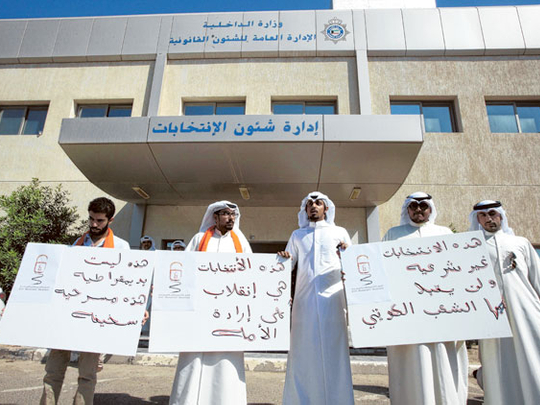
Manama: A brief but furious stand-off between those for and against the election in Kuwait City on Wednesday was a clear indication of the growing division in the country over the merit of the national polls.
The government called for parliamentary elections on December 1 and the registration process started on Wednesday.
Parliament hopefuls went to the office to register their names, but people calling for the boycott of the elections staged a brief demonstration urging people not to register their names and warning them that they were “selling Kuwait”.
However, they were chased away by those who supported the elections amid accusations that their actions were “harming Kuwait”.
The stand-off occurred as the authorities were still quizzing former MP and opposition leader Musallam Al Barrak over his alleged insult of the Emir.
Reports said that he would remain in the custody of the public prosecution for another ten days pending the investigation after a plea by his lawyers to release him on bail was turned down.
Al Barrak reportedly denied the charges related to his speech on October 15 in Irada Square and sought the testimony of Prime Minister Shaikh Jaber Al Mubarak and other senior officials.
The ten-day custody extension means that Al Barrak will not take part in the rally planned for November 4 to protest against the amendment of the 2006 electoral law.
A rally held last week degenerated into a limited scuffle between the police and demonstrators and resulted in injuries on both sides.
Those who called for the November 4 rally on social networks did not reveal their identity and did not announce the itinerary or the location, unlike the first time.
The interior ministry said that it would not tolerate any gatherings or rallies outside Irada Square and that it would apply the law against violators.
The street pressure seemed part of the opposition’s intimidation versus the government’s determination situation in Kuwait.
The cabinet has lately shown self-assurance in tackling the issue by quizzing key opposition figures who targeted the emir in their speeches and by starting the election registration process.












